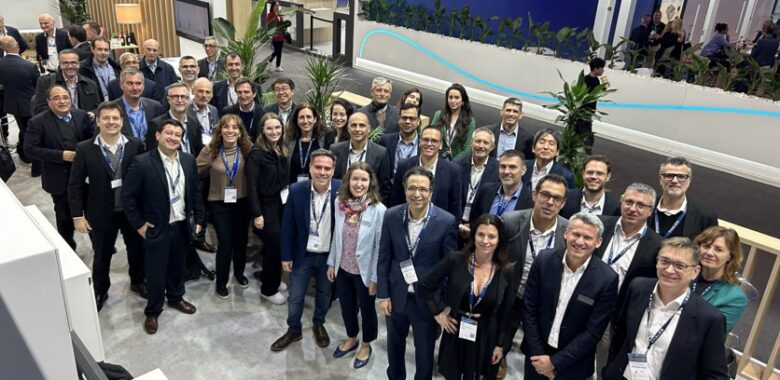‘This article first appeared on Philippe Vallee’s LinkedIn’
The European Union has set an ambitious 2050 carbon neutral target, and to meet its goals, countries in the bloc will need meaningful policies, collaboration, and decisive action to create change and accomplish this goal.
Energy management will undoubtedly be a key component in driving this transformation. In the UK alone, it is estimated that 11% of the UK’s 2050 carbon emissions target could be reached just by implementing household energy efficiency measures – such as the installation of smart meters.
While there is a wealth of evidence to suggest that action to address the spiralling climate emergency needs to be quick and decisive in order to stop or reverse the impact on the environment, any measures or developments that will help achieve these targets have to be well considered, forward-looking and not merely responsive.
This means there’s a responsibility for all parts of the business ecosystem that are positioned to reduce the carbon footprint of certain industries – such as electricity utilities and smart meter manufacturers – to do so in a secure manner.
Smart meters and the ‘green revolution’
Smart meters are so important in the push towards unilaterally reducing our carbon footprint because of the invaluable data they provide to managers of the grid. By understanding peak times for energy usage and consumer behaviours, it is possible to manage the supply and demand of energy, ultimately reducing waste and cost.
Smart meters will also be essential in other aspects of the ‘green revolution’, such as the shift to using electric vehicles (EVs), as they can inform consumers when energy costs are cheapest and power sources are greener. This information is a powerful tool for green-minded consumers, who can then choose the best time to top up their EVs.
It’s this combination of adaptive wholesale energy provision and citizen empowerment that make smart meters a strong asset in the fight to achieve carbon neutrality.
Security threat to the grid
While the resulting ‘smart grid’ is well-placed to reduce unnecessary waste and deliver cost savings to consumers, it presents its own share of challenges – specifically around security.
My colleagues recently drafted a post detailing how a single entry point – such as a smart meter – for a hacker could be used to destabilise the entire grid. Researchers from Princeton University found that a botnet of compromised power-consuming IoT devices could be ordered to switch on or off simultaneously, abruptly increasing or decreasing power demands. This sort of co-ordinated attack could potentially precipitate a large-scale blackout.
The potential weaponisation of elements in the smart energy value chain is clearly a rare possibility, but it’s certainly not completely far-fetched. Other threats, such as a hacker viewing unencrypted data on an unsecured smart meter and using that to predict when people aren’t at home, is a more personal outcome for malicious use of these trends.
The possibility of both widespread and targeted attacks on smart meters is a big problem as manufacturers across Europe hope to win consumers over to their benefits as part of a comprehensive shift to the grid.
The importance of evolving end-to-end security
What this serves to underline is just how key end-to-end security is for manufacturers in the IoT ecosystem. With just one device acting as a possible entry point to the wider network, total collaboration and a security-by-design mentality is necessary if this shift is going to be truly effective.
Not only that, it is important to remember that IoT security is a constantly moving target – devices like smart meters need to be upgradeable and updated throughout their entire lifetime. It’s therefore important that each device has a unique identity to ensure these identities are managed throughout their lifecycle, and that software updates that are rolled out can only be accepted by trusted sources.
Utilities and smart meter vendors each have their own set of challenges when applying IoT security across millions of meters with a lifetime of 10-15 years. While utilities need vendor-independent options that keep the Total Cost of Ownership (TCO) low, smart meter makers need solutions that ensure security without driving up their manufacturing costs.
This whitepaper from my colleagues is a useful point of reference for utility companies looking for answers to this conundrum. Alternatively, meter manufacturers looking to implement end-to-end security without incurring exorbitant costs can visit our website.
Total collaboration is the key to smart grid success
Smart grids have the possibility to be truly transformative and a key component of the EU’s drive to be carbon neutral by 2050. By analysing consumption trends, the smart grid can reduce energy waste and deploy renewable energy sources when the demand isn’t so high. On top of that, it also hands powerful analytics to consumers, granting them control over their energy usage.
However, the true effectiveness of the grid will only be realised if all stakeholders involved in its success take a similar security-by-design approach. It only takes one chink in its armour for a hacker to compromise the system, threaten an attack and ultimately undermine consumer belief in the technology. For smart energy to realise its world-saving potential, we need total collaboration on end-to-end security from all parts of the ecosystem.



